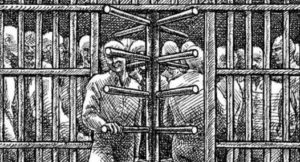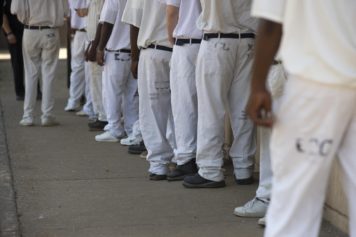In a classic example of unintended consequences, the effort to “ban the box” may cause more harm than good, in some cases. According to the Urban Institute, the policies to curb discrimination against ex-offenders by removing questions about one’s criminal history from job applications may actually increase racial discrimination.
At issue are the increased instances of discrimination facing groups that are more likely to be incarcerated. In the absence of information on a particular applicant’s criminal record, employers may rely on “group averages”— arrest and conviction statistics based on race. Due to institutional racism, the war on drugs, “stop and frisk” racial profiling and “broken windows” policing, Black people are disproportionately ensnared in the criminal justice system. And if given a choice between a Black candidate and a white candidate, the employer may decide to select the white one because the Black applicant is statistically more likely to have a criminal record — or at least there is the perception that the Black person is more likely to have a criminal record.
The possibility that ban-the-box policies could lead to even more discrimination — particularly against groups who face disproportionate incarceration — suggests that institutional racism and white supremacy are far more profound and intractable, and more comprehensive solutions are necessary to solve a systemic problem. While any given solution may have its drawbacks, imperfections or unintended consequences, the status quo is unacceptable.
“What is needed instead are policies and programs that address problems much farther upstream, where members of minority communities are being funneled into the criminal justice system,” according to the Urban Institute.

Roosevelt Institute, George Washington University
The statistics on unemployment and incarceration based on race are stark, pointing to a system of entrenched institutional racism that must be addressed, far above and beyond ban-the-box measures. While unemployment for white men between ages 16 and 19 was 15.9 percent in the first quarter of 2015, the rate was 27.5 percent for Black men. Further, as the jobless rate for white men between ages 20 and 24 was 9.1 percent, it was nearly double for Black men of that age group at 17.8 percent. The Urban Institute notes that this disparity is due in part to the high levels of imprisonment of Black men. While people of color are 37 percent of the population, they are 67 percent of the nation’s prison population. A felony record makes it more difficult to find a job, so much so that the total male employment rate was lowered 1.5 to 1.7 percentage points in 2008 due to the massive number of formerly incarcerated men. Meanwhile, the cost to the economy is $57 to $65 billion in lost output. Further, as The New York Times reported in 2015, there are 1.5 million missing Black men in America, due primarily to prison and premature death.
The movement to ban the box is spreading across the U.S., with the federal government, major companies in the private sector, and states and localities taking part. More than 600,000 former prisoners enter the job market each year, according to The Huffington Post, and 23 states and more than 100 cities and counties have passed their own ban-the-box laws.
Meanwhile, ban the box is going to college. As Fusion reported, the Obama administration is asking colleges and universities to stop asking applicants about their criminal backgrounds. U.S. Secretary of Education John B. King made a new policy proposal last Monday, in which he asked educational institutions to stop asking prospective students about their criminal records in the early stages of the admissions process. He argued that the questions place a burden on people of color who are trying to turn their lives around.
“We believe in second chances and we believe in fairness,” King said in a statement. “We must ensure that more people … have the chance at higher education opportunities.”
The Department of Education is disseminating a guide called “Beyond the Box” which urges college administrations to follow the federal government’s example.
According to the Center for Community Alternatives, two-thirds of universities collect data on the criminal records of prospective students. However, a majority of these institutions lack a written policy on how this information impacts college admissions. A 2013 study published in the Journal of School Violence found that 35 percent of institutions denied admission or enrollment to at least one individual based on criminal history in fall 2010. In addition, colleges that collect criminal history information expressed greater reluctance to admit students with a criminal background, and a higher percentage reported rejecting applicants based on a felony record.



